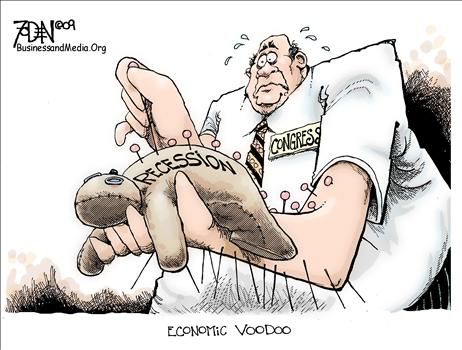Barack Obama's policy plans are driven by the belief that New Deal economic programs ended the Great Depression. Not so. In fact, thanks to New Deal policies and programs, the U.S. economy faltered for years longer than it might otherwise have done, says Mark Levey, senior managing director at Lotsoff Capital Management in Chicago. [snip]
The problem was that neither Roosevelt nor Hoover grasped the essential nature of the crisis, which was not the stock-market crash, but global deflation. The same perils are now confronting Obama, as the risk of deflation casts a long shadow over the economy.
Yet, the quickest way to strengthen the credit system and begin the end of this crisis is to get money into the economy for true job creation, and not into government work programs. The way to do this is to slash taxes.
The U.S. corporate tax rate, currently the highest in the world, should be cut to zero; the capital-gains tax should be cut further. If the United States is to lead the international economic community out of this crisis, this is the place to start, says Levey.
[those familiar with history know that cutting tax rates is the key to recovery: it's worked every time. So what's the problem? It doesn't expand government power - and that's the real agenda behind all spending stimuluses (or they'd leave the money in your pocket)]
READ MORE
FLASHBACK: Don't Repeat Errors of New Deal
THE historical model that the Democrats are choosing to hold up as they ponder our financial crisis isn't Harry Truman's Fair Deal or Lyndon Johnson's Great Society. It is Franklin D. Roosevelt's New Deal.
At least three economic reforms under discussion now were also central in the New Deal package. Trouble is, these reforms didn't necessarily work well when they were first tried - and some failed outright...
Thursday, January 22, 2009
LEAVE THE NEW DEAL IN THE HISTORY BOOKS
Subscribe to:
Post Comments (Atom)














No comments:
Post a Comment